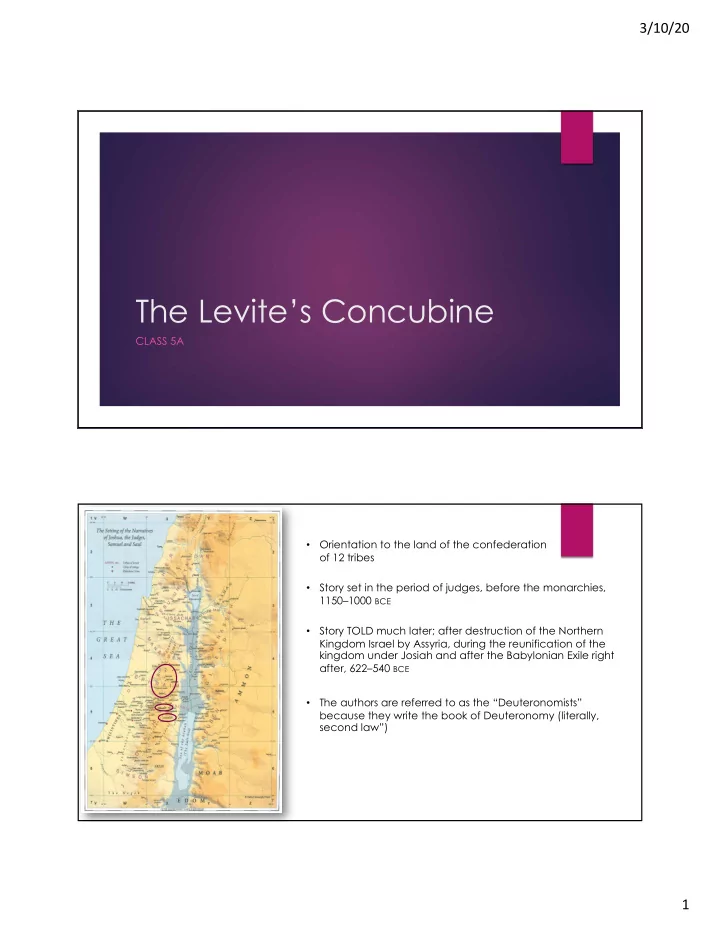

3/10/20 The Levite’s Concubine CLASS 5A Orientation to the land of the confederation • of 12 tribes Story set in the period of judges, before the monarchies, • 1150–1000 BCE Story TOLD much later; after destruction of the Northern • Kingdom Israel by Assyria, during the reunification of the kingdom under Josiah and after the Babylonian Exile right after, 622–540 BCE The authors are referred to as the “Deuteronomists” • because they write the book of Deuteronomy (literally, second law”) 1
3/10/20 Our Authors & Their Plot • The Deuteronomists write much of the Hebrew Bible (Deuteronomy, Joshua, Judges, 1–2 Samuel, 1–2 Kings) • They have endured first the loss of the northern kingdom to Assyria, and then the reunified kingdom to Babylon • There are several issues they are trying to address: David, first king of unified Israel Our plot lies early in their • Is their covenant with Y HWH still valid? wider story of Israel’s • What sort of monarchy, if any, is good? history, just before its first King Saul is chosen. Its • What is the relationship of the people Israel role is to explain why a to the land Israel? king is needed. Our Characters • Levite • Levite’s concubine • Levite’s father-in-law • The old man from Ephraim, living in Gibeah • The Benjaminites of Gibeah • All of the Israelites 2
3/10/20 The original Hebrew has “she On your handout of Judges 19, review the part of the fornicated against him” story in the left column against the part of the story on the right. How do the actions on the left compare or Some wonder if the last letter contrast with the actions on the right? is het ( ח ) rather than he ( ה ); in that case, the verb would be “she resisted him” – closer to the LXX Judges 19:22-26 The verb, “to know” The verb, “to oppress, ( ידע ) humiliate, afflict, violate” ( ענה ) 3
3/10/20 Judges 20:4-7 When the Levite recounts the crime, he uses the second verb, ענה , “to oppress humiliate, afflict, violate” Is this what happened? Has the Levite left anything out? 4
Recommend
More recommend